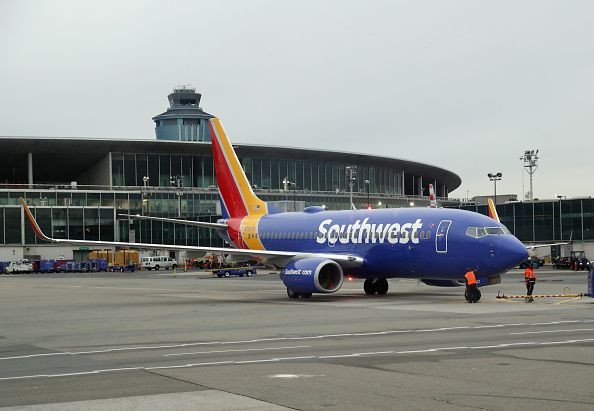Cost Creep At Southwest Airlines Will Help Its Rivals In 2019

Back in October, Southwest Airlines (NYSE:LUV) posted solid results for the third quarter of 2018, including a 16% increase in adjusted earnings per share. Nevertheless, the stock plunged after management warned investors that nonfuel unit costs are on track to increase by at least 3% in 2019.
This article originally appeared in the Motley Fool.
CEO Gary Kelly remains cautiously optimistic that Southwest Airlines can grow unit revenue more than 3% next year, more than offsetting its cost inflation. However, to do that, it will need to avoid getting caught up in any fare wars. That's great news for its biggest competitors: Delta Air Lines(NYSE:DAL), American Airlines (NASDAQ:AAL), and United Continental (NASDAQ:UAL).
Southwest Airlines has held airfares down
The rise of ultra-low-cost carriers in the U.S. means that Southwest Airlines often doesn't offer the lowest fares these days, as it usually did a couple of decades ago. Nevertheless, its fares remain quite low, particularly in the most competitive markets. And considering Southwest's massive scale (compared to most budget airlines), its popularity with customers, and its "bags fly free" policy, the carrier remains the most powerful force in the U.S. airline industry in terms of keeping fares low.
For example, when a change in federal regulations allowed Southwest Airlines to significantly expand its footprint in Dallas a few years ago, the result was a sharp drop in fares.
Indeed, fares for the Dallas-Fort Worth market as a whole went from being 2.3% higher than the national average in the third quarter of 2014 to 8.5% lower than the national average a year later. This put severe pressure on unit revenue at American Airlines, which has its largest hub at Dallas-Fort Worth International Airport.
Southwest's expansion at key airports in New York and Washington, D.C., has similarly brought fares down in those markets in recent years. And just last year, it played a big role in instigating a fare war in California.
Changing course
While Southwest Airlines has shown a willingness to provoke fare wars from time to time, that doesn't mean doing so has no impact on its profitability.
In 2015, Southwest's growth in Dallas, New York, and Washington, D.C., contributed to a 1.5% decline in its revenue per available seat mile (RASM). More recently, its competitive actions have caused RASM to be roughly flat in 2017 and down slightly year to date.
Southwest Airlines' management -- and its shareholders -- won't be satisfied with that type of unit revenue performance in 2019. As a result, Southwest is slowing its growth, aside from the market that is its key near-term priority: Hawaii.
The carrier also initiated a fare increase of $2 to $5 one-way recently. That was particularly notable, because jet fuel prices have fallen by more than $0.40 per gallon since the second half of October, when most airlines provided their Q4 forecasts.
Great news for the legacy carriers
This is great news for American Airlines, Delta Air Lines, and United Airlines. If Southwest is focused on driving unit revenue growth next year, that should make for a relatively placid competitive environment. Barring an unexpected economic downturn, American, Delta, and United should be able to achieve solid unit revenue growth in such a scenario.
If oil prices remain near current levels, it wouldn't take much in the way of unit revenue growth to drive huge profit increases. Unlike Southwest Airlines, the legacy carriers have all pulled back from fuel hedging, putting them in position to reap the full benefit of lower jet fuel prices.
Obviously, oil prices may remain volatile, but as things currently stand, airlines' fuel bills would decline in 2019. Given that American, Delta, and United all expect to achieve lower nonfuel unit cost increases than Southwest next year, this would allow them to deliver higher profits even with no RASM growth. If the revenue environment stays strong and oil prices don't bounce back much, all three top airlines should be able to substantially improve their profit margins next year. That could unlock huge gains for their shareholders.
Adam Levine-Weinberg owns shares of Delta Air Lines and Southwest Airlines. The Motley Fool owns shares of and recommends Southwest Airlines. The Motley Fool owns shares of Delta Air Lines. The Motley Fool has a disclosure policy.





















